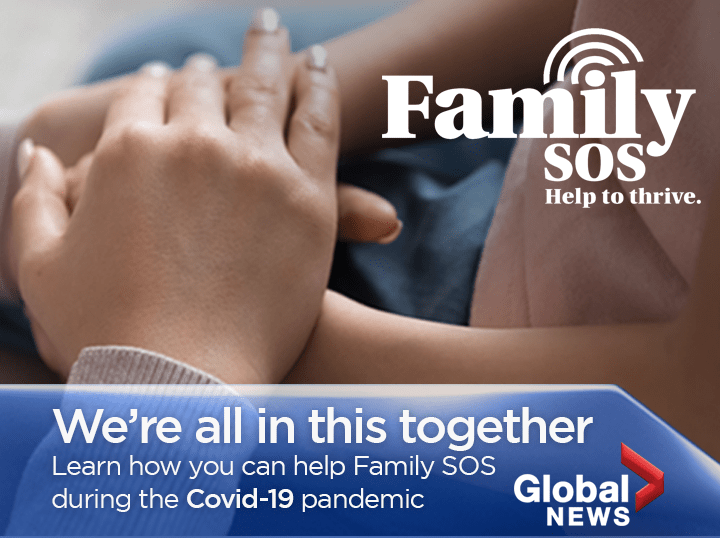Once a week, Global News will feature our local community partners to highlight how they are handling day-to-day operations during the coronavirus pandemic and how you can help.

Family SOS is sending out a call for help.
Since schools in Nova Scotia shut down in March, thousands of students from pre-primary to Grade 12 have had to continue their studies from home, using technology like computers, tablets and apps to keep learning and stay in touch.
For students who don’t have these items at home, staying in touch with fellow classmates and teachers is a challenge, and keeping up with schoolwork is next to impossible.
“Education is a human right and there’s kids right now that don’t have access to it,” says Emma Donnelly, special programs co-ordinator with non-profit Family SOS, which aims to build strong and healthy families. “There are kids right now that are still receiving an education simply because they have a computer but then there are kids that haven’t had any access to it and haven’t for the last two months.”
Since the COVID-19 pandemic shuttered schools and self-isolation and physical distancing rules were put in place, the staff at Family SOS have been doing their best to connect vulnerable kids with resources to continue their education at home. The organization sends out 150 activity packages each week to youth ages pre-primary to teen in the Greystone community of Spryfield, N.S.
Along with these packages, the staff have been trying to connect with families through technology to facilitate their own literacy program. That’s when Family SOS realized there was a disconnect.
“We found out there was a need and demand (for computers) when we tried to set up Zoom meetings to make our literacy program more engaging,” Donnelly says. “We discovered most of the families don’t have access to computers to do that.”
The Nova Scotia Department of Education and Early Childhood Development has a dedicated learning website and has been providing biweekly at-home learning packages to low-technology households. These packages are included among the flyers distributed by newspaper publishing company Saltwire Network.
“We’ve received feedback on how accessible it is to people where English is a second language or kids who might not be able to read on their own yet,” Donnelly says. “There’s limitations to that resource that we’re trying to address and laptops are just a better option so these kids have access to an interactive education like their peers.”
The organization looked to Ontario’s response to at-home learning during the pandemic. In April, the Ontario government announced it would deliver 21,000 iPads to students across the province, some with built-in Wi-Fi for families that don’t have the internet access.
“Right now people from low-technology households in Nova Scotia are at a great disadvantage. It’s not fair,” Donnelly says. “Efforts to address this issue by the Department of Education have been less than ideal.”

Family SOS set a goal to collect donated laptops, tablets and computers to give kids in their community a chance to continue their studies from now through the summer so they can be caught-up once schools reopen in the fall. The non-profit is also accepting monetary donations through its website for this need.
Family SOS has not only asked the Department of Education to step up for kids in the province, but has also reached out to local MLAs and businesses for help. Due to the pandemic shutdown, response has been slow or has stalled completely. The organization feels it is time to reach out to the community for help before it’s too late for vulnerable children to catch up to their peers.
“I think raising awareness to the fact there are many kids who haven’t had any access to their education for almost two months is very important,” Donnelly says. “We still believe that putting out a call for donations is the best thing to do right now to address this issue sooner rather than later.”
To donate gently used or new laptops, tablets and computers, contact Donnelly directly by email at emma@familysos.ca.
Monetary donations can also be made to Family SOS through its website.





Comments